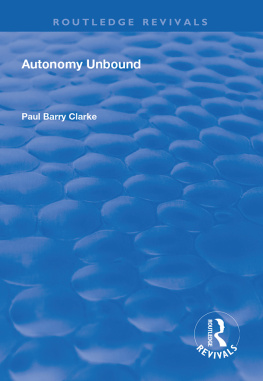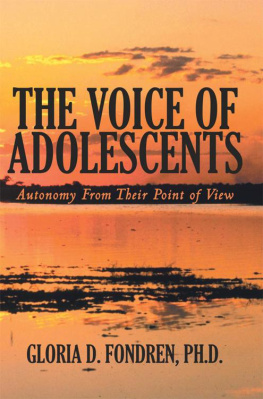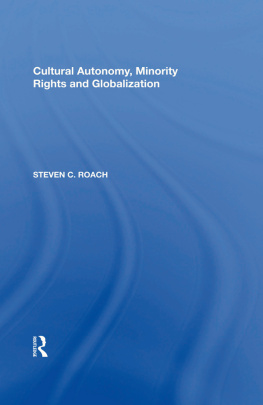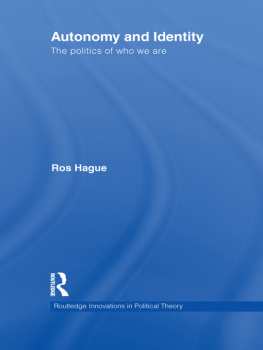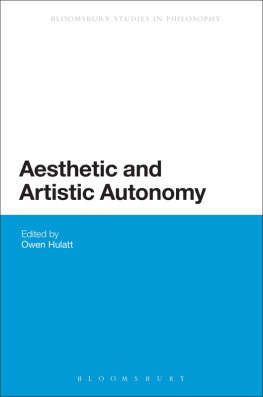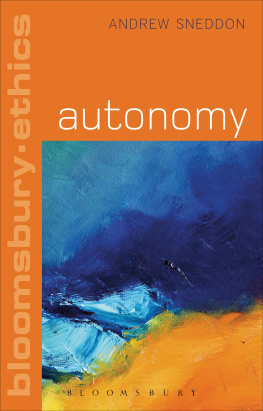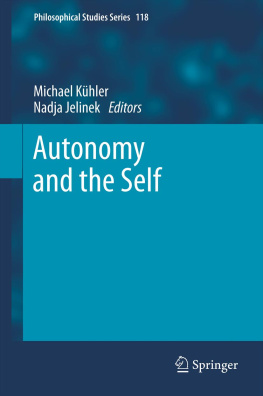First published 1999 by Ashgate Publishing
Reissued 2018 by Routledge
2 Park Square, Milton Park, Abingdon, Oxon, 0X14 4RN
711 Third Avenue, New York, NY 10017, USA
Routledge is an imprint of the Taylor & Francis Group, an informa business
Copyright Paul Barry Clarke 1999
All rights reserved. No part of this book may be reprinted or reproduced or utilised in any form or by any electronic, mechanical, or other means, now known or hereafter invented, including photocopying and recording, or in any information storage or retrieval system, without permission in writing from the publishers.
Notice:
Product or corporate names may be trademarks or registered trademarks, and are used only for identification and explanation without intent to infringe.
Publishers Note
The publisher has gone to great lengths to ensure the quality of this reprint but points out that some imperfections in the original copies may be apparent.
Disclaimer
The publisher has made every effort to trace copyright holders and welcomes correspondence from those they have been unable to contact.
A Library of Congress record exists under LC control number: 99073390
ISBN 13: 978-1-138-60766-8 (hbk)
ISBN 13: 978-1-138-60768-2 (pbk)
ISBN 13: 978-0-429-46051-7 (ebk)
There is an ambiguity about acknowledgements, which has to be recognized. On the one hand no one person writes a book. It emerges from the culture and is one way about telling a story about a part of that culture. On the other hand, as any author knows, a book tends to write itself. It has its own imperatives and seems to be more in control of the author than the author is in control of the book. Nevertheless there are individuals who play a major part in the writing of the book. Not all of them can be acknowledged. Ones debts are too great and the culture too wide to be able to mention everyone. Nevertheless some people stand out as memorable. In this case, these are Lawrence Quill, Melissa Brown, Diane Caldwell, Nicos Zolotarios, Svanborg Sigmarsdottir and Emma Norman. Additionally, graduate students have been subjected to my ideas and complained about them, sufficiently and vocally to make me think and rethink. In many places I have taken note of those complaints. In other cases, like any responsible author, I have ignored them in favour of my own views. It goes, therefore, without saying, that the final version is mine and mine alone.
A further debt of gratitude, which I wish to publicly acknowledge, is to Bob Pickering who somehow or other kept me going when times were very difficult. I appreciate both his help and his banter. I am also very grateful to John and Irma Farkas who gave me facilities and time to complete the manuscript while I was in Melbourne and to Bill and Betty Sharman in Queensland for their continued help.
Finally, I am grateful to the Department of Government at the University of Essex. Its freedom to pursue research, no matter how quirky, has been a joy to me. It is an ideal model of a first class research institute. I am grateful to have been part of it and to partake of it.
Colchester and Melbourne 1998-9
The notion of autonomy occupies an ambiguous position in contemporary thought. On the one hand it is taken as central to modern life, even to the point of being regarded as a significant good. On the other hand, autonomy is a concept that has taken such a battering from some communitarian and post-modern sources that it is a commonplace, in some areas of thought, that autonomy is at best an ephemeral illusion and, at worst, impossible.
There are a number of specific accounts of this latter kind of claim, many of which differ in detail. They do, however, have some common features and do, therefore, cluster as a claim having a general form. At its clearest it seems that autonomy is a notion that, like humanism, stands for an impossible yet hegemonic western project, that is based on a set of past, and mistaken, presumptions. If this is so then it follows that an end to those presumptions would mean the elimination of autonomy and cognate notions from both theoretical discourse and from praxis. The autonomous self it is often argued, does not exist and if the self did exist it would, in any case, not be autonomous.
In contrast to claims that are dismissive of the concept and idea of autonomy, are a set of claims and practices that place the notion as central to much, if not all, liberal thought, to liberal conceptions of freedom and, sometimes, to cognate conceptions of the self. Without some concept of autonomy, it is sometimes argued, there could be no individual action, no significant sense of individuality, no sense of responsibility and no account of praise or blame for actions undertaken. In that sense autonomy is central to liberal democratic life. To undercut autonomy is, therefore, to undercut the assumptions on which liberalism and even democracy rest.
The divide between modes of thought that permit, and modes of thought that deny, autonomy is often taken to be great, perhaps insurmountable, resting as it does on what appears to be not merely incommensurable, but also incompatible notions of being.
Here I want to diagnose what underlies this divide, seek out some of its causes, analyse its importance, and suggest that the divide may not be as great as it sometimes appears. Those that affirm and those that deny the significance and actuality of autonomy do, I will argue, share sufficient components of a tradition of thought that makes what appears incommensurable at least partially commensurable. Notwithstanding the objections, I will argue that autonomy can and indeed ought to be asserted not as a simple notion but rather as a complex of ideas, not all of which apply to all people at all times. Autonomy, I will suggest, is an idea that lies deep in western political consciousness.
I will argue that an account of autonomy which takes seriously the communitarian notion that we are historical beings must, therefore, include some account of the religious as well as the secular roots of autonomy.
I will argue that it is the transformation of the theistic basis of western society that has made a re-assertion of a genuine range and diversity of concepts of autonomy possible. Contra those post-modern thinkers who argue that the death of God eliminates the basis for autonomy, I will argue the opposite: the presence of God in the world may well have introduced the idea of autonomy but its instantiation in particular religious practices effectively eliminated its practical significance.
While the application of the idea of autonomy to persons is relatively recent, the idea underlying personal autonomy has a long lineage in a variety of earlier forms and is contained as a value in numerous sources in western thought. In ancient times it is found as the concept of autarchy, the sovereignty of the city-state. In early medieval thought it is found in the historically critical arguments that distinguished church from state. In early modern times it was given a uniquely individualistic and ethical twist: the sense in which we now know it. In this sense its best known representative is Immanuel Kant In liberal thought John Stuart Mill drew a distinction between individual and society based on the autonomy, or as he put it, the sovereignty, of the individual to pursue their own independent ends always providing that the pursuit of those ends produced no harm to others (Mill, 1979).

